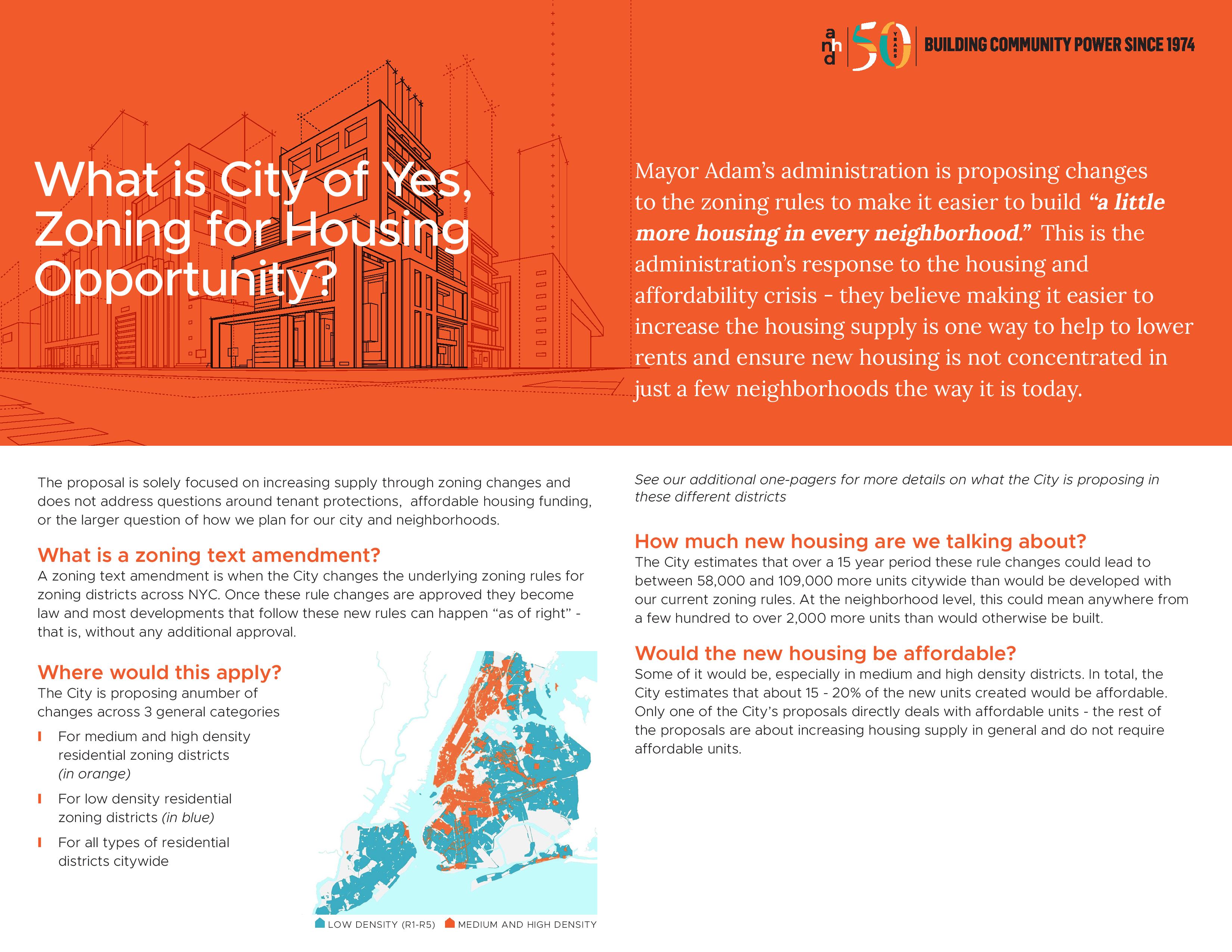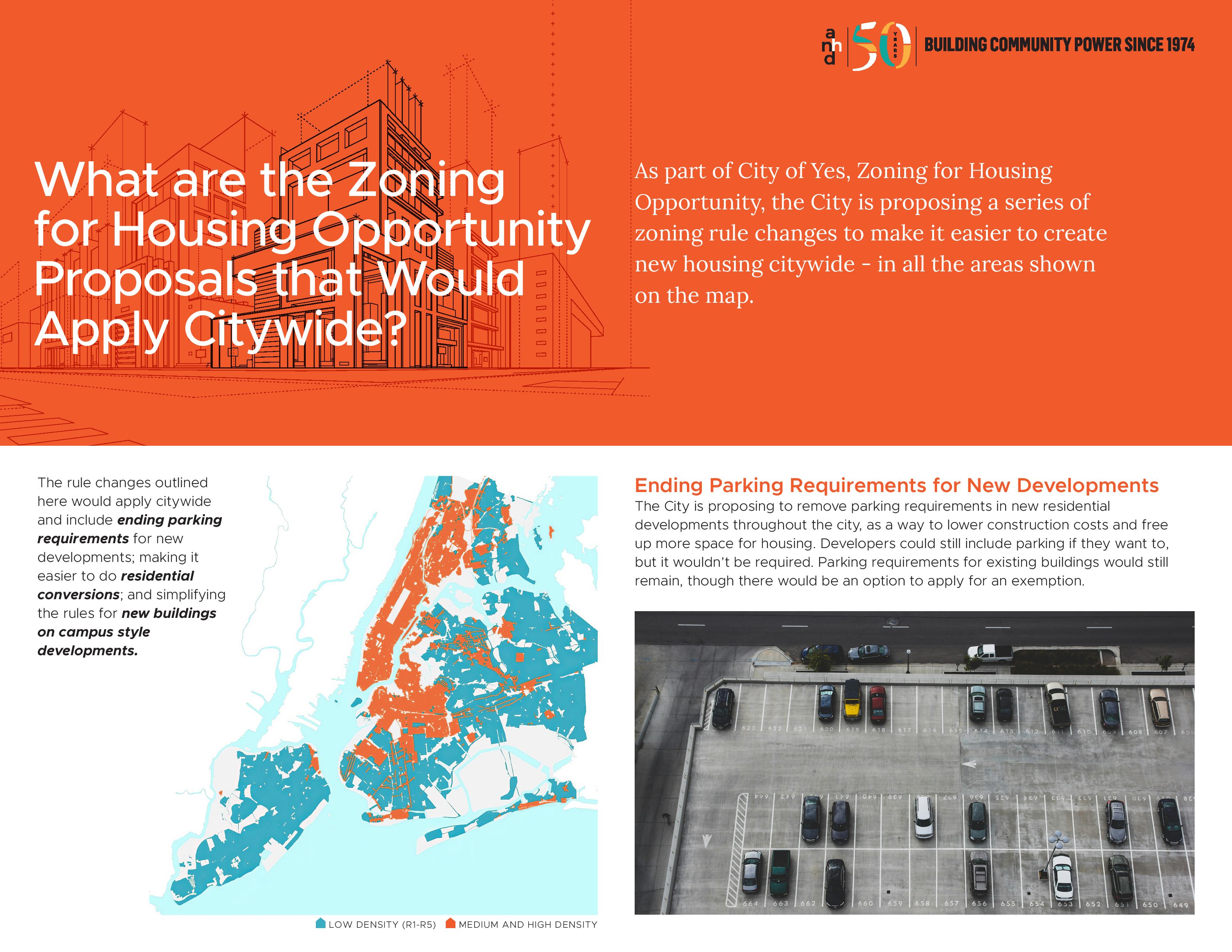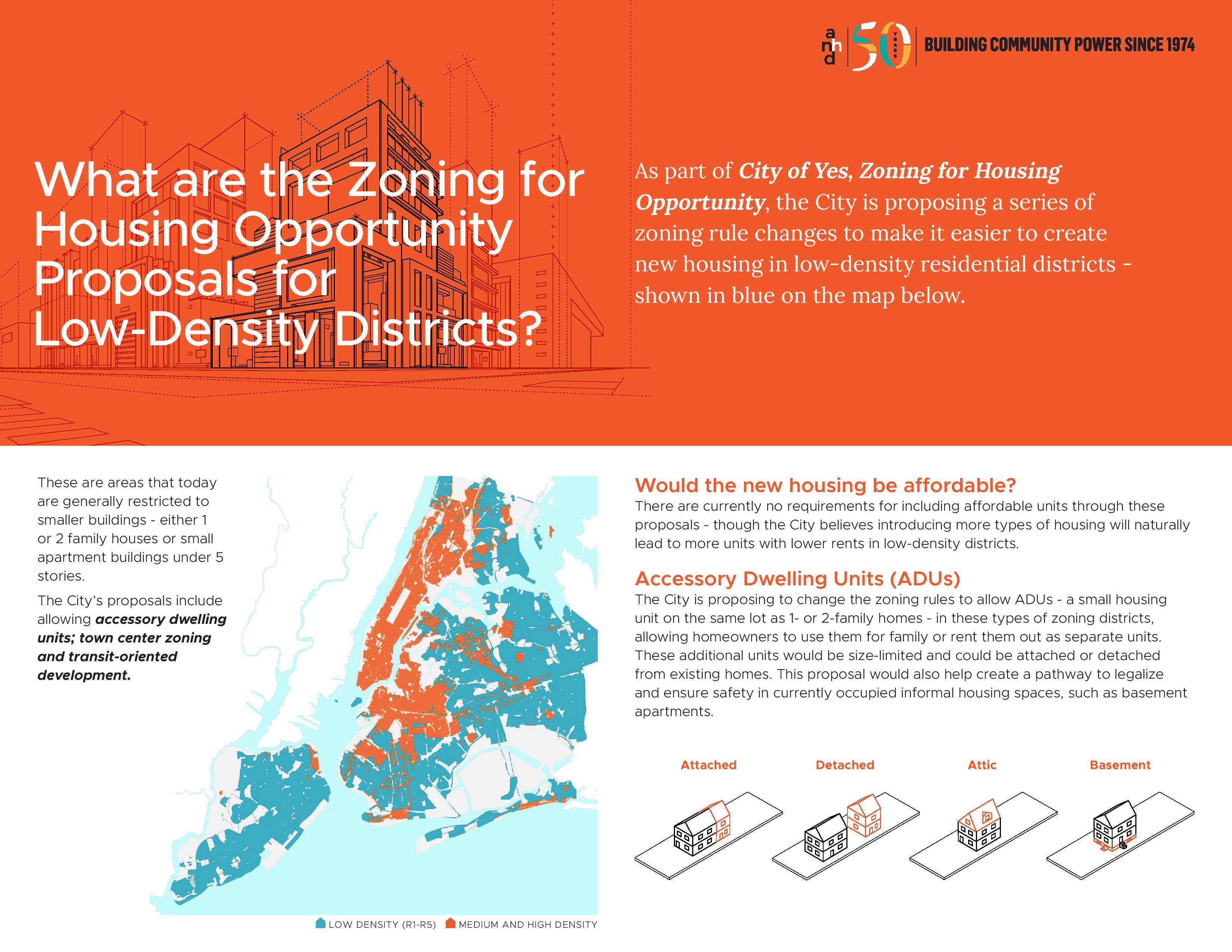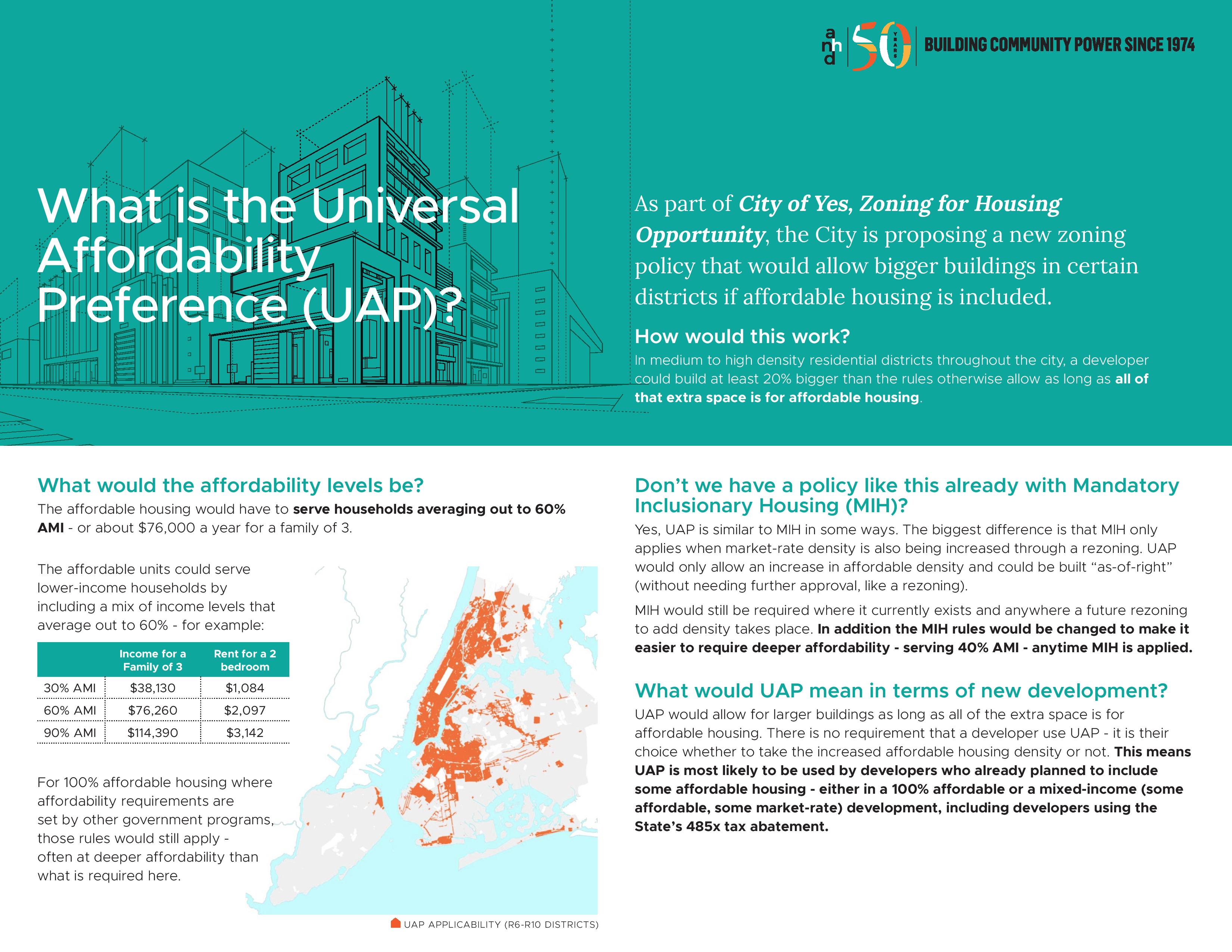English and Spanish educational materials explaining the City of Yes - Zoning for Housing Opportunity, set to pass in City Council this fall.
Today, the City Planning Commission will hold a hearing on the third and final part of Mayor Adams’ City of Yes proposal – labeled Zoning for Housing Opportunity (ZHO). The proposed zoning text amendment includes a wide array of citywide zoning changes that would impact housing development and affordability in neighborhoods throughout the city for decades to come. It’s been clear in ANHD’s briefings and conversations with our members, allies, and broader communities that there is a great need for support and materials to help community members understand and engage with the proposal, even as it has already begun the public review process.
We’re excited to share a set of new materials breaking down key aspects of ZHO.
ANHD has long supported the need for a more equitable distribution of new housing development across the city, to ensure that every neighborhood is doing its part and that unfair burdens do not continue to fall on our most marginalized communities. In that vein we support the intention of the ZHO proposal to introduce more opportunity for housing development in neighborhoods across the city, particularly those that have not done their fair share and remain exclusionary for too many New Yorkers.
But it is crucial to stress that this goal cannot be achieved through focusing zoning reform solely on a supply-side approach that seeks to primarily increase unregulated, market-rate housing production. The reforms through the City of Yes Zoning for Housing Opportunity (ZHO) text amendments must take an affordable housing-first approach that seeks to increase not just housing production in general, but specifically rent-regulated affordable housing production, at a higher percentage of total development than today, across all neighborhoods in the city. This is where the greatest housing need in our city lies. Lower income households experience rent burdens and evictions at disproportionate rates, while the vacancy rate for apartments renting for under $1,100 is functionally zero. We must ensure that changes to our residential zoning regulations are focused on serving this vital need for affordable housing and do not help tip the market in certain neighborhoods away from the production of mission-driven, 100% affordable developments, thereby decreasing the percentage of affordable development overall. This is especially important in low-income, BIPOC neighborhoods, with high displacement risk.
ANHD’s recommendations for Zoning for Housing Opportunity include:
-
Ensure deeper affordability in medium and high density neighborhoods by requiring income averaging in the Universal Affordability Preference.
-
Ensure greater consistency across neighborhoods and better incentivize 100% affordable housing by extending the highest proposed affordable density bonus of 77% (with all added density required to be affordable) to all districts in which the Universal Affordability Preference applies.
-
Add affordability requirements in all buildings over 10 units under both the Town Center Zoning and Transit Oriented Development proposals.
-
Ensure that proposed zoning changes to enable Accessory Dwelling Units, and especially legalization of existing basement apartment units, remain intact.
-
Provide necessary resources to community organizations as well as government agencies to prevent potential negative impacts such as residential and small business displacement, and ensure low and moderate income and BIPOC communities are equipped to utilize and benefit from the proposed changes.
Watch ANHD’s full testimony here. ANHD will continue to support education and engagement around the City of Yes with our members to support a more affordable and equitable New York.



